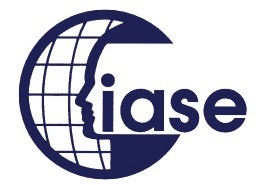Why Babies Avoid Eye Contact And What Can You Do For It?
20th May 2022

Eye contacts are always special when the bond is extremely precious. A mother always waits for eye contact from her baby. It becomes a special moment when babies make eye contact with their mothers and giggle. Parents feel relaxed when they can feel that their babies make good eye contact because maintaining eye contact constantly means that the visual power of kids is on point.
Problems arise when babies have trouble with eye contact. Parents lose their cool and become anxious when they encounter such scenarios. We have spoken with our doctor friends whose forte is the genre of specially-abled children. They have shared multiple scenarios with us where parents come and complain that their babies break eye contact or feel uncomfortable looking into their parents’ eyes.
What’s the take of doctors on this problem?
Doctors have faced questions like WHEN SHOULD INFANTS MAKE EYE CONTACT or HOW TO DEVELOP EYE CONTACT SKILLS WITH BABIES from parents. Well, the special conditions are one of the main reasons why babies do not maintain eye contact. Parents often break down when they hear that their babies have rare gifts and that is why they behave differently. That is why doctors these days are recommending special education courses for parents so that parents can cater to the needs of babies even if babies are unable to communicate like the common cases.
Here it is from a mom’s perspective:
Let’s hear it from doctors that why eye contacts are so important:
Doctors believe that eye contact is one of the most specific ways of communicating non-verbally. Babies do not start speaking the moment they are born and neither can they point at things they need initially. Good eye contact is a message to parents that their babies will be able to communicate properly. In fact, doctors believe that good eye contacts help in developing proper social and relation-building skills down the line.
What about special education teachers?
“Working with students having special gifts is an achievement for us because these kids are so special and many are rare gems. In fact, we love teaching special education needs kids because many of them are magnificently creative and can even perform better than ordinary kids” - so said a special needs educator.
Special teachers have witnessed that kids with rare gifts like Autism, Down syndrome, ADHD, Learning disabilities, cerebral palsy, etc., have a social anxiety disorder as well. These kids do not make eye contact and most of them are pretty shy. Their development and implementation of social skills are very poor.
We hate to break this but the social stigma smells so foul that parents in this 21st-century also are to some extent ashamed. That is a prime reason why these kids suffer from a lack of confidence. Their body language is extremely clumsy and they hate making eye contact with people. In fact, many general education teachers have come upfront and shared how parents of ordinary kids behave when they get to know about the concept of inclusive classrooms.
This is absolutely disheartening, pathetic, and disgusting, and we cannot find any good reason not to condemn this. We feel that those parents who frown upon special children literally need to learn a lot about empathy. In public schools, we do not find much of an inclusive classroom concept but there are multiple private schools that encourage this beautiful concept so as to help kids with gifts win against their odds.
Special needs educators and doctors have mentioned several significant approaches to help kids to make eye contact.
While eating:
Once eye muscles and depth perception of a baby have developed, it becomes a bit easier for parents to feed her/him and thereby, maintain eye contact. With babies at least 5- 8 months old and parents having a spoon full of food ready, they get the baby’s attention and raise the spoon to the line of vision between their eyes and the baby’s.
Playtime:
There are numerous ways to improve eye contact with babies while playing with them. Making funny sounds, tickling them, fondling them, or playing peekaboo are some fantastic ways to develop eye contact with them. Even babies love these activities and parents can help the best to develop their eye contact skills.
During Conversations:
Sometimes kids are busy while playing with their toys and it is a major trait of special children that when they’re participating in any activity they do it with utmost concentration. This is especially visible in kids having autism. Parents can call their names till they respond or can come close to kids and place a hand on their shoulders to get their attention.
While gazing somewhere else:
Parents must carefully notice when a child is averting her/his gaze and they should also ask them why and how they are feeling. Doctors and special ed teachers have observed that avoiding eye contact can become a signal that something else is going on in their minds. They may be in need of support and guidance from their parents.
Children who do not make eye contact are in dire need of help but they do not know how to ask for it as they are not aware of the root cause of their trouble. Thankfully, doctors and special education teachers have figured out why they avoid eye contact and how parents can work on it. Parents who want to help kids to do not do eye contact much can definitely take the help of special education courses for parents. Various techniques are explicitly explained in those courses and for more information, call our toll-free number: 1800-212-6400.








